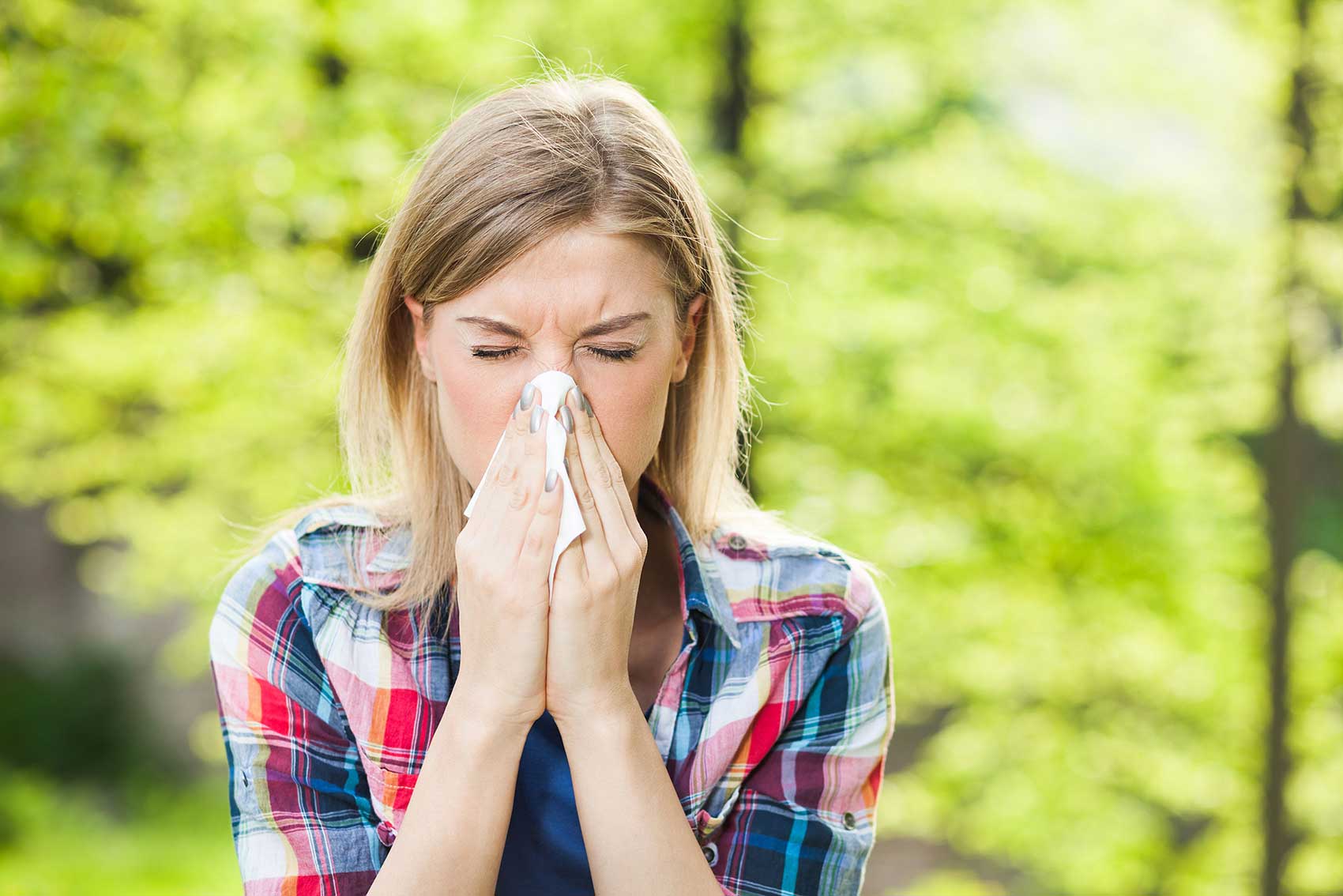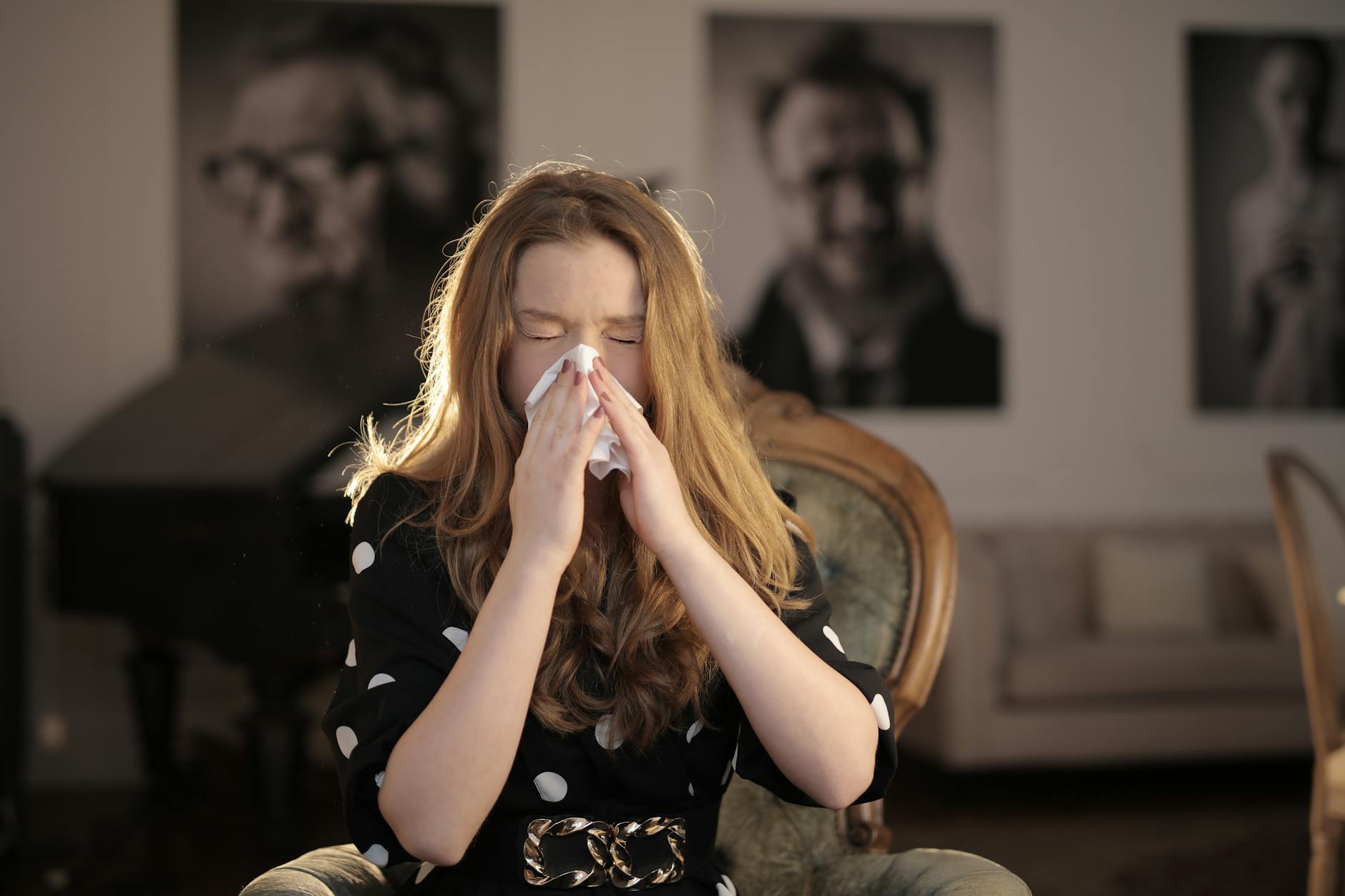


Allergies and sinus infections often feel like two sides of the same coin, leaving many wondering how they’re connected. Allergies, caused by an overactive immune response to substances like pollen or dust, can lead to inflamed nasal passages. This swelling can trap mucus in the sinuses, creating the perfect environment for infections to develop. Understanding this link isn’t just about easing discomfort; it’s a crucial step in managing symptoms before they escalate. Whether seasonal allergies or chronic issues are at play, knowing how they interact with sinus infections can lead to better relief and long-term care.
Allergies and sinus infections might seem unrelated, but understanding them is key to unraveling their connection. Allergies are triggered by the immune system’s overreaction to harmless substances, while sinus infections result from bacteria or viruses inflaming the sinus cavities. Let’s break this down further.
Allergies occur when your immune system reacts to substances like pollen, pet dander, dust mites, or certain foods. These substances, known as allergens, are usually harmless to most people. However, if you have allergies, your body sees them as a threat and begins its defense mode.
The immune system releases chemicals such as histamine, which cause classic allergy symptoms, including:
These symptoms can vary from mild to severe and often occur seasonally or during exposure to specific triggers. For example, springtime often intensifies pollen allergies. Learn more about allergies and their typical symptoms from Cleveland Clinic.

A woman sitting on a couch with eyes closed, holding her nose in apparent sinus pain.
Photo by Kaboompics.com.
Sinus infections, or sinusitis, occur when your sinuses become inflamed due to bacteria, viruses, or even fungi. Normally, sinuses are air-filled spaces in the skull, but when mucus cannot drain properly, they provide the perfect breeding ground for infections.
There are two primary types of sinusitis:
Common symptoms of sinus infections include:
Sometimes, it’s tricky to differentiate between a sinus infection and a cold, as the symptoms overlap. However, facial pain and prolonged symptoms are key indicators of sinusitis. For additional information, visit CDC’s Sinus Infection Basics.
Each of these conditions can significantly affect your quality of life, and understanding them is the first step toward managing their interaction.
Allergies don’t just make you sneeze or itch; they can also significantly impact your sinuses. When allergens like pollen, dust mites, or pet dander trigger a reaction, the body’s immune response has a unique way of influencing sinus health. Let’s analyze the connection step by step.
Allergies turn your body’s defense system against harmless substances. When an allergen is encountered, your immune system releases histamine, causing the nasal passages to swell. This swelling leads to nasal inflammation, which blocks the normal flow of mucus. Imagine a clogged sink: when there’s nowhere for the water (in this case, mucus) to drain, it stays stagnant.
This inflammation also creates excess mucus within the nasal cavity—what some might describe as a never-ending runny nose. Over time, this inflammation doesn’t just cause congestion but also prevents the sinuses from draining properly. Without proper drainage, the stage is set for infections. More about this phenomenon is explained in this informative article from Zyrtec.
When sinuses get blocked, they turn into a hidden breeding ground for unwanted guests like bacteria and viruses. Typically, the sinuses are lined with tiny hair-like structures known as cilia, which help keep mucus moving. However, inflammation caused by allergies can disrupt these cilia, allowing mucus to accumulate.
This warm, stagnant environment is perfect for bacteria to thrive. It’s not just bacteria, though—fungi and viruses can also move in, compounding the issue. What starts as mild discomfort can quickly escalate into acute or chronic sinusitis, with symptoms like pressure around the cheeks and eyes, thick nasal discharge, and persistent headaches. Learn more about how nasal swelling impacts sinus health through this guide from ACAAI.
Studies repeatedly show that there’s a tight connection between allergies and sinus infections. For instance, research published in the Journal of Allergy and Clinical Immunology states that individuals with allergic rhinitis have elevated risks of developing sinusitis due to persistent nasal swelling. You can check the study here.
Another insightful study from Biomed Central highlights that people with allergies often experience more frequent and severe sinus infections, particularly during allergy peaks in spring and fall. This study indicates that managing allergy symptoms can directly reduce sinus infection rates. Find detailed findings from this research here.
Understanding this link better equips those with seasonal or chronic allergies to take preventive measures. From antihistamines to saline rinses, proactive allergy management can prevent the domino effect leading to sinus infections. Do you find yourself asking how often allergies bring you down? Perhaps it’s time to investigate these correlations further.
When it comes to distinguishing between allergies and sinus infections, the symptoms can sometimes seem misleadingly similar. However, understanding the unique markers of each condition is key to proper management and treatment.
Allergies are driven by an immune system response to perceived threats like pollen, pet dander, or dust mites. This overreaction triggers a cascade of symptoms that are often linked to irritation and inflammation.
Common allergy symptoms include:
These symptoms typically emerge shortly after exposure to an allergen and may persist as long as the trigger remains present. Unlike infections, allergies rarely cause fever or body aches. If you’re trying to narrow down your symptoms, this Mayo Clinic guide provides excellent insights.

A young woman with closed eyes sneezing into a tissue, sitting indoors.
Photo by Andrea Piacquadio.
Sinus infections, or sinusitis, present differently because the root cause is inflammation and infection within the sinus cavities. Unlike allergies, sinus infections often show signs of bacterial or viral invasion.
Key sinus infection symptoms include:
These symptoms often follow a cold or respiratory illness and could persist for weeks if untreated. For more details about sinus infection symptoms and how they differ from allergies, check this Cleveland Clinic resource.
Sometimes, the lines between allergies and sinus infections blur. Nasal congestion and postnasal drip, for instance, are common with both conditions. So, how do you tell them apart?
Here are a few scenarios that could cause confusion:
If you’re stuck playing the guessing game, consult your doctor. For a deeper understanding of overlapping symptoms, this Healthline article is a helpful read. Knowing what to look for makes all the difference in finding fast, effective relief.
Sinus infections and allergies often go hand-in-hand, but their treatment and prevention require targeted effort. Knowing how to manage both ensures prompt relief and fewer complications. Let’s break it down into actionable insights.

A man sneezing into a tissue, illustrating symptoms of flu or allergies.
Photo by Pavel Danilyuk.
Effective allergy management can significantly reduce the chances of developing sinus infections. Treatments focus on relieving symptoms and controlling triggers, including:
Taking these steps doesn’t just help with allergy relief; they also keep your sinuses clear and reduce inflammation.
Sinus infections require a slightly different game plan, especially when a bacterial infection is involved. Over-the-counter remedies and healthcare consultations often complement each other:
Knowing when to consult a doctor is also key. If symptoms persist or worsen, always seek medical advice.
Prevention is often the best cure, especially for individuals prone to sinus issues due to allergies. A few lifestyle changes and habits can significantly reduce risks:
For additional prevention techniques, read this helpful guide on avoiding sinus infections.
Taking these proactive steps lets you tackle allergies and sinus issues from all angles, making daily life just a little easier to breathe through.
To fully understand the relationship between allergies and sinus infections, we must delve into the evidence and perspectives from experts as well as recent studies. This section highlights how specific allergens, immune responses, and biological mechanisms interplay to influence sinus health.
Allergens do not affect everyone equally. Sensitization—the process where the immune system becomes hyper-aware of particular allergens—can dictate how prone a person is to experiencing sinus infections. Studies suggest that allergic reactions to specific perennial allergens, such as dust mites or mold, may have a stronger impact on sinus infection development than seasonal ones like pollen. Persistent exposure to these allergens often leads to prolonged nasal inflammation, paving the way for chronic sinus congestion and sinusitis.
Research dives deeper into this connection, showing that individuals sensitized to multiple allergens may face heightened risks. For example, findings shared in this article describe how repeated allergen exposure disrupts nasal function and contributes to conditions like chronic sinusitis. Understanding your allergen profile through tests can help tailor prevention plans and reduce sinus infection risks.
Here’s a surprising twist: higher levels of immunoglobulin E (IgE) antibodies, commonly associated with allergic reactions, might protect against sinus infections in some cases. How so? It appears that IgE antibodies can sometimes help clear allergens from the nasal passages more effectively, reducing the risk of prolonged inflammation.
An enlightening review on IgE’s role, shared in this study, hints at this inverse relationship. The findings challenge traditional perspectives that only focus on elevated IgE as a risk factor. However, IgE’s protective influence might depend on the type or level of exposure to a specific allergen. While this angle of research is still being explored, it underscores the complex role of our immune system in managing both allergies and their complications.
To unravel the connection between allergies and sinus infections, it’s essential to examine the biological mechanisms at play. When allergens like pollen or pet dander enter the nasal cavity, the immune system releases inflammatory mediators such as histamines and leukotrienes. These substances not only trigger classic allergy symptoms like sneezing but also inflame and restrict nasal passages, making it harder for mucus to drain.
Chronic inflammation can further alter the normal functioning of your sinuses. For instance, the cilia, tiny hair-like structures responsible for moving mucus, may become impaired under prolonged exposure to allergens, as detailed in this research. This sets the stage for mucus buildup and bacterial colonization—ideal conditions for sinus infections.
Furthermore, an insightful overview from Johns Hopkins Medicine highlights the role of immune dysregulation in creating a cycle of allergic and infectious responses. Essentially, the longer the immune system battles allergens, the higher the likelihood of collateral damage to your sinus health. This interaction underlines why controlling allergies isn’t just about reducing sneezing but preventing deeper complications like sinusitis as well.
By dissecting these mechanisms, scientists and health professionals are better equipped to develop treatments that target not only symptoms but also the root causes of this intricate relationship.
Effectively managing allergies and sinus infections requires more than just medications; it calls for meaningful lifestyle adjustments. By adopting better dietary habits, making environmental changes, and prioritizing regular healthcare checkups, you can stay ahead of your symptoms and find lasting relief.
What you eat has a profound impact on your body’s ability to fight inflammation and maintain a resilient immune system. A balanced diet packed with anti-inflammatory foods can be a game-changer for reducing allergy-related sinus issues.
These small yet meaningful diet changes can significantly alleviate both the severity and frequency of sinus infections that arise due to allergies. If you’re curious about specific foods that could amplify your immune function, this guide from Mayo Clinic Health System is a must-read.
Your home should feel like a safe haven, not a triggering environment. Yet, allergens like dust, mold, and pet dander can often make homes the epicenter of allergy flares. Transform your space into an allergen-free zone with these simple tips:
Small changes can make a world of difference in your ability to breathe comfortably at home. Explore these simple yet effective modifications in detail by visiting Mayo Clinic.
Would you skip oil changes for your car? Probably not—so why overlook checkups for your health? Regular visits to your healthcare provider can catch potential issues early and provide tailored solutions for managing allergies and sinus infections.
Your doctor can:
Regular consultations aren’t just about treating problems but also preventing them. Learn more about how periodic healthcare visits can enhance your quality of life by reading this in-depth resource from Detroit Sinus Center.
 Photo by Cnordic Nordic.
Photo by Cnordic Nordic.
Focusing on these three lifestyle strategies will not only create a proactive plan for dealing with allergies and sinus infections but also vastly improve your overall well-being.
Understanding the connection between allergies and sinus infections helps you stay ahead of potential discomfort. Allergies can turn into more than just an annoyance when they lead to sinus inflammation and infections, creating a cycle that’s hard to break.
Addressing your symptoms early—whether through managing allergies or seeking sinus infection treatment—can prevent complications. Tools like nasal sprays, proper allergen control, and regular healthcare consultations make all the difference in maintaining clear sinuses and better health.
If you frequently feel stuck battling these problems, talk to a doctor or specialist. The better you understand what’s triggering your symptoms, the quicker you’ll find relief. Breathe easier by taking proactive steps toward protecting your sinus and overall well-being!





